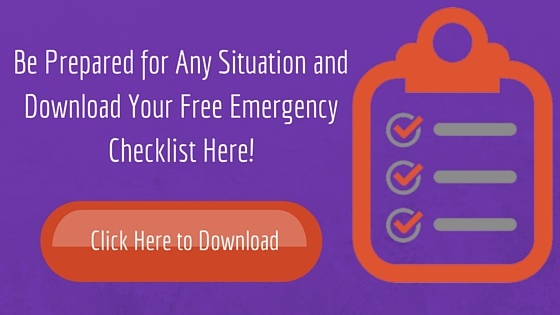
In light of the recent fires in the Pacific Northwest, and the threat of a powerful El Niño year we thought an evacuation action plan might be helpful. Oxygen users should have an emergency kit on hand, not just in times of natural disaster, but always. Even an overnight power failure requires quick action on the oxygen user’s part to maintain oxygen levels.
When faced with the threat of wild fire the best course of action for those with lung conditions is to evacuate before the fire reaches your area if possible.
Air quality is compromised in an area of hundreds of miles at times. Smoky air causes stinging eyes, increasingly severe allergies, and in some cases asthma attacks and COPD exacerbations.
If it isn’t feasible to vacate the area stay indoors as much as possible. Try to keep your home air clean by keeping doors and windows closed and using an air purifier with new or clean filters.
Make sure the air conditioning in the house and car are set on the recirculating setting.
If your concentrator has a gross particle filter, clean it often. It’s a good idea to have a spare so one can be drying while the other is in use.
During evacuation and anytime you are outdoors wear a mask over your nose and mouth.
For smoke, a regular dust mask isn’t going to be sufficient. You will need a mask with a true HEPA (High-Efficiency Particulate Air) filter.
If emergency evacuation is possible and you cannot evacuate early, contact authorities in your area or organizations that may be assisting with the evacuation, such as the American Red Cross.
Let them know that you are an oxygen user and that in the event of an evacuation you might need additional assistance.
Be sure to keep your batteries fully charged in case you lose power and it takes some time to get to an area with power.
If you do lose power and you are able to safely get to a police station, fire station, or hospital, go there as they most likely have access to power generators that are operational during outages.
You might consider purchasing a generator of your own if power failures occur often in your area.
It’s a good idea to keep an evacuation kit or “Go Bag” handy. Some of the items in this bag should include:
- Charged batteries for your concentrator
- Extra batteries for CPAP, BiPap, Pulse Ox, Nebulizers or other equipment
- External battery charger, if you have one
- Extra tubing
- Spare cannulas
- Alcohol wipes to clean equipment with
- A/C Power Cord
- D/C Power Cord
- A copy of any prescriptions, including your oxygen dosage
- Insurance information and identification
Once you’re back home and it’s time to clean up after the fire or other natural disaster be careful not to trigger an exacerbation.
For someone with COPD, Asthma, and other respiratory ailments, dust and soot should be avoided at all costs.
If possible get someone to clean up any particulates that have accumulated in your home. If you don’t have a friend or family member who is able to help you consider hiring a professional.
If that’s not possible try a nearby church or charitable organization who may be able to organize an army of volunteers to help you.
If you do have to clean up on your own try to reduce airborne particulates by wetting down affected areas.
Be sure to wear a proper mask during clean up. If you suspect that asbestos or other hazardous materials are present, do not enter the area under any circumstances.
An abatement service will need to be called. Contact your local Environmental Health and Safety Office for guidance.
We hope you never need this information but hope this helps if you do. If you have been in an emergency situation and have any advice for others please leave it in the comments below.




